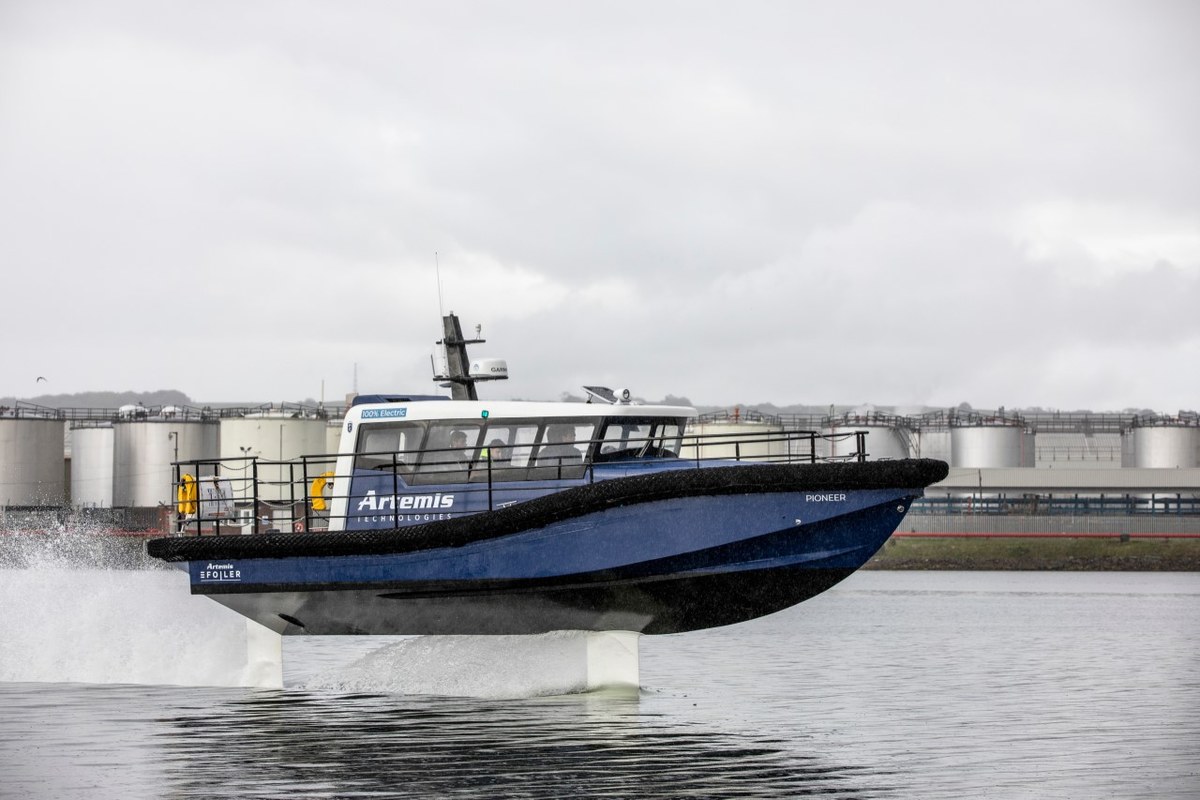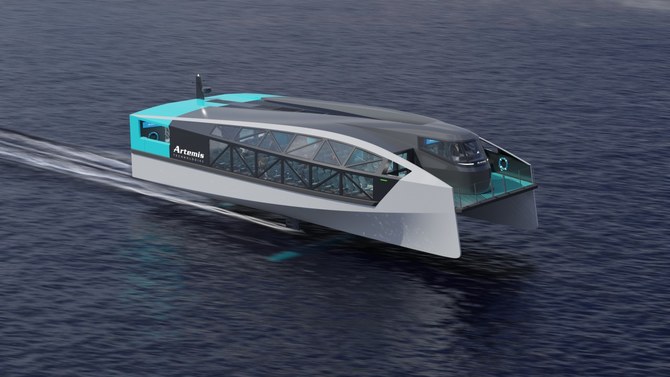RIYADH: The Kingdom’s maritime sector is progressing in alignment with the National Transport and Logistics Strategy and Saudi Ports Authority’s targets, which aim to position Saudi as a global logistics hub.
Increased digitalization and greater reliance on autonomous applications and big data are integral to driving maritime innovation and progress in Saudi Arabia.
David Tyler, commercial director of Artemis Technologies, said that the maritime sector is a critical pillar for the Kingdom’s Vision 2030.
He said: “As Saudi Arabia makes significant headway toward achieving carbon neutralization, technology remains instrumental in this journey.”
He added that following years of underinvestment in innovation by the global maritime transport sector — when compared to the automotive industry, aviation and rail — the sector was under pressure to develop and adopt disruptive technologies to hit ambitious emission reduction targets.
Tyler said: “The case isn’t too different for the Middle East and the Kingdom. Due to a lack of viable low or zero-emission solutions available, most vessels continue to use aging, inefficient and polluting propulsion systems.”
He added that innovation in Saudi Arabia’s maritime sector is possible through the efficient implementation of new advanced technologies, which will help enhance fleet utilization, streamline commercial processes and reduce greenhouse gas emissions.

Tyler told Arab News that Artemis Technologies has ambitious expansion plans for the Middle East.
He said: “The Middle East has grown as a region of opportunity for sustainability and will serve as the host for COP28.
“Saudi Arabia presented 66 initiatives as part of its environmental plan at COP27 in Egypt last year, in line with the Saudi Green Initiative. We are aligned with the Saudi Green Initiative targets of reducing emissions by 278 million tons per annum by 2030.
“We are keen to transfer technical know-how to Saudi youth in the area of electrification, as well as drive transferable skills relevant to other mobility sectors.
"There is an evident paradigm shift taking place in Saudi Arabia’s maritime sector, toward a new era of digitalization.”
The digitalization of vessel operations has raised the performance of ports within the Kingdom, with King Abdullah Port earning the title of the world’s most efficient, according to the Container Port Performance Index developed by The World Bank.
Tyler added that sustainability is also a key determinant of the performance of the Kingdom’s maritime sector.
He said: “Decarbonisation of the maritime industry is underway in Saudi Arabia, led by the design and development of transformative technologies and zero-emission vessels.
“Such transformative technologies will help propel the regional maritime sector’s alignment with the targets set by the International Maritime Organization for the shipping industry to reduce its carbon emissions by 40 percent by 2030.”
Artemis recently launched high-speed, zero-emission electric ferries in Dubai, with claims that they can cut fuel costs by up to 85 percent.
Tyler said: “A high-speed electric passenger ferry service seems like the obvious opportunity for the Kingdom, given its shift towards electrification across transportation services. This would be the fastest, greenest, and most enjoyable way to get around.”
Maritime trade plays a key role in the Middle East region. The tourism industry is booming and Saudi Arabia recorded a total of 93.5 million tourists in 2022, according to figures released by the Ministry of Tourism.
Tyler added that Saudi Arabia’s sustainable megaprojects such as the Red Sea Project, Diriyah Gate, AMAALA, Qiddiya, and NEOM will help it achieve its goal of attracting 100 million visitors a year before 2030.
He said: “Sustainable and futuristic transport systems form the crux of these megaprojects: from NEOM’s 170-kilometer-long car-free mirrored city The Line, to a fleet of electric buses across the Red Sea Project.
“There are a number of exclusive island resorts being developed in the Kingdom, and this is leading to an increase in the need for sustainable passenger ferries and water taxis, which are being demanded by more eco-conscious travelers coming into Saudi Arabia every year.”














